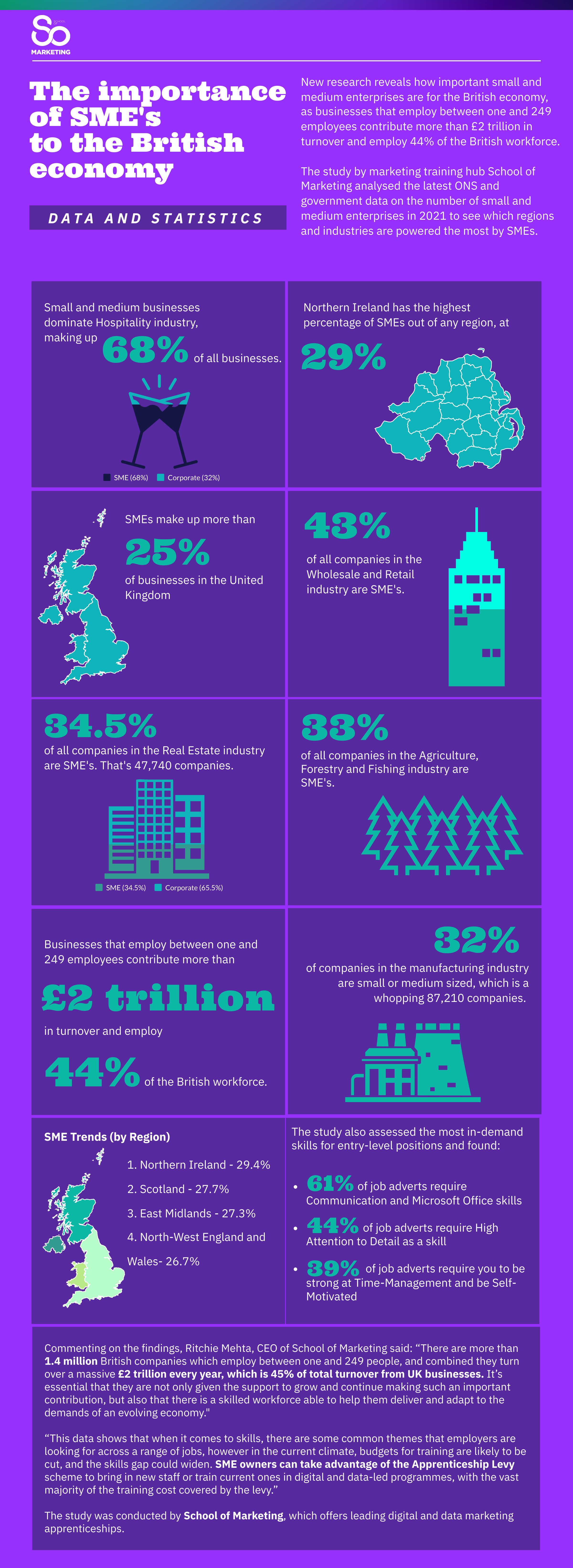
New research reveals how important SMEs are for the British economy as they contribute more than £2 trillion in turnover and employ 44% of the British workforce.
The study, by the School of Marketing, analysed the latest ONS and government data on the number of SMEs in 2021 to see which regions and industries are powered the most by SMEs.
Analysis of the industries revealed that the hospitality industry has the highest proportion of SMEs out of any industry. Out of the 200,645 businesses operating in the industry, 140,050 are small or medium-sized, which equals roughly 69.8%. The hospitality industry is made up of accommodation and food services, including hotels and restaurants.
The industry with the second-highest percentage of SMEs is wholesale and retail. This industry has more than 500,000 businesses and more than four in 10 (43%) are small or medium-sized.
Real estate industry has the third-highest proportion of SMEs, with 35.4% of all enterprises having below 250 employees. The industry has 134,095 businesses operating in the UK and 47,740 are small or medium-sized.
The study also analysed each UK region and found that Northern Ireland has the highest proportion of SMEs in the UK. Scotland ranked as second, England as third and Wales as fourth – with 26.7% of operating businesses in the country being SMEs.
The study also assessed the most in-demand skills for entry-level positions across a range of industries and found that communication and Microsoft Office proficiency are the most commonly occurring skills on job adverts – both appear in 61% of the jobs that were analysed. The third most in-demand skill is a high attention to detail, appearing in 44% of ads for entry-level positions.
“It’s essential that SMEs are not only given the support to grow and continue making such an important contribution, but also that there is a skilled workforce able to help them deliver and adapt to the demands of an evolving economy,” said Ritchie Mehta, CEO of School of Marketing. “This data shows that when it comes to skills, there are some common themes that employers are looking for across a range of jobs, however in the current climate, budgets for training are likely to be cut and the skills gap could widen. SME owners can take advantage of the Apprenticeship Levy scheme to bring in new staff or train current ones in digital and data-led programmes, with the vast majority of the training cost covered by the levy.”




